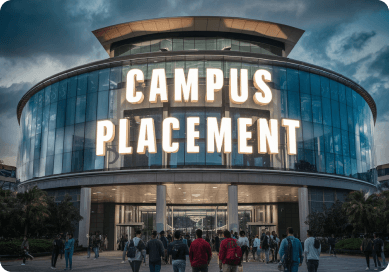Enter OTP



Besancon, France

Besancon, France

Cost Of Living

Undergraduate Fees International Students

Post Graduate Fees International Students

The University of Burgundy Franche-Comté stands out for its strong research focus, low student-to-faculty ratio, and highly qualified professors, most of whom hold doctoral degrees. It leads doctoral training in the region and promotes a thriving scientific culture. Recognized globally, the university was ranked among the top 27 French institutions by Times Higher Education in 2017 and placed in the top 900 globally by the Leiden Rankings. Its achievements in research are backed by numerous publications and patents. Students benefit from a wide range of academic programs, international exposure, and access to research-driven learning. Scholarships, grants, and fellowships are also available for eligible students, making quality education more accessible.
The University of Burgundy Franche-Comté offers a well-integrated and modern infrastructure across its multiple campuses, supporting over 60,000 students and 8,000 staff. Facilities include advanced science and tech labs, multimedia classrooms, digital libraries, and collaborative research centers. Campuses are equipped with recreational areas, cultural hubs, performance spaces, athletic fields, and accessible cafeterias. Students benefit from Wi-Fi-enabled study zones, co-working spaces, and tech support services. Housing, bookstores, and transport links are also integrated into campus life for ease and accessibility. The overall setup fosters a seamless academic, cultural, and social experience across the entire Bourgogne-Franche-Comté region.
Student life at the University of Burgundy Franche‑Comté is lively and diverse, with students mingling through clubs, cultural events, and sports activities across campuses. You’ll find film fests, theatre productions, music nights, and academic societies that bring people together outside the classroom. Cafés, gardens, and student-run media like radio stations and magazines offer chill spaces to study, debate, and create. Campus life blends academics with real connections—study groups and language cafés are everywhere. Orientation weeks kick things off with energy, icebreakers, and city exploration tours. All told, life here isn’t just about lectures—it’s about community, creativity, and finding your people.


The University of Burgundy Franche-Comté (UBFC) offers comprehensive career services to support students in their professional development. The Career Center (Service des Stages et de l'Insertion Professionnelle) provides personalized career counseling, workshops on resume writing and interview techniques, and organizes job fairs and recruitment events to connect students with potential employers . Many programs include mandatory internships, offering students hands-on experience in their field of study, with guidance and supervision throughout the process . The UBFC Alumni network facilitates networking opportunities, mentorship, and career advice through an intergenerational, multidisciplinary platform . Additionally, the university collaborates with numerous companies and organizations, providing students with opportunities for internships, projects, and job placements . These initiatives collectively enhance UBFC's commitment to fostering student employability and professional success
The below information is required while
completing the university application :
High?school diploma equivalent (Baccalauréat or international equivalent)
You must hold a complete secondary school certificate (e.g., A?Level, IB, High School Diploma) that’s officially translated into French by a sworn translator
Language proficiency
French?taught programs require at least B2 level (TCF, DELF, DALF) for most Bachelor’s courses; higher levels (C1/C2) may be needed for specific faculties
English proficiency (TOEFL ≥74 iBT) may also be required for certain English-taught tracks
Official academic transcripts
You need notarized and translated versions of your high?school grades, showing your complete academic record
Motivation letter
A compelling personal statement explaining why you want to study at UBFC and how your background aligns with the program is usually required
CV and/or Letters of Recommendation
Although more common for Master’s, some Bachelor applications may ask for a CV or one academic/professional recommendation (varies by program)
Online application + administrative documents
You must apply via the official platform before deadlines and later submit: identity proof, a passport-style photo, proof of health insurance, and (if needed) visa documentation for non?EU students
Know more
The University of Burgundy Franche-Comté supports strong campus recruitment through its career services, industry partnerships, and research-driven learning approach. Students are trained through practical programs, internships, and exposure to real-world challenges, making them job-ready across sectors. The university’s close ties with local and international industries help create placement opportunities in research, healthcare, technology, and more. Career support includes resume workshops, job fairs, and one-on-one guidance to prepare students for competitive markets. Its emphasis on innovation and skill development attracts employers looking for qualified, adaptable graduates. The low student-to-faculty ratio also ensures personalized mentoring throughout the placement process.



The University of Burgundy Franche-Comté has earned a strong reputation for academic and research excellence, both nationally and internationally. In 2017, it was ranked among the top 27 universities in France by Times Higher Education and placed in the top 900 globally by the Leiden Rankings. Its faculty members consistently contribute to high-impact research, resulting in a growing portfolio of publications and patents. The university plays a central role in doctoral education and scientific innovation within the region. Its success is reflected in strong industry partnerships, international collaborations, and recognition across academic circles. These achievements solidify its position as a leading institution in higher education and research.


On January 1, 2025, the University of Burgundy formally became “Université Bourgogne Europe,” bringing together 11 institutions (including Burgundy School of Business and Science Po Dijon) across six campuses. The move reinforced UBFC’s mission, expanding to 400 courses, 28 research labs, and broad European-wide partnerships, particularly in tech, health and humanities
UBFC earned a position in the 601–800 range in the Times Higher Education World University Rankings 2023. That reflects its research rigor, teaching quality, and global engagement, raising its international profile
Every year, UBFC organizes the "Village des Sciences" in Dijon and around 150 public-science events—including planetarium shows and festivals—through the national Fête de la Science. These events boost public science engagement and foster community‑researcher exchanges
In June 2019, the University of Burgundy joined the European University Initiative as a founding member of FORTHEM. This alliance connects eight universities across Europe (Finland, Norway, Germany, Poland, Italy, Spain, Latvia, Romania), enabling joint degrees, cross-border research programs, and student mobility. It's a strategic step toward forming a borderless European campus, access to shared funding, and innovative course offerings. This places UBFC at the center of European higher education integration while enhancing its institutional profile internationally
Between 2016 and 2020, UBFC faculty members were repeatedly selected for the prestigious Institut Universitaire de France (IUF), which highlights top-tier academic research across France. Notables include François Jarrige (2016), Christophe Finot (2017), Guy Millot (2019‑Senior), and Christophe Thomazo (2020‑Junior). These selections reward academic rigor and give recipients five-year support to pursue independent and interdisciplinary research. They also signify national recognition of UBFC scholars in fields ranging from humanities and psychology to biogeosciences and photonics.
In 2016, UBFC was awarded the prestigious i‑SITE BFC label under France’s “Investissements d’Avenir” program. This year‑long achievement marked UBFC as a leader in higher education, with strong multidisciplinary research axes—from smart materials to environmental transitions and integrated health. The project energized regional innovation, drew top international talent, and created cutting‑edge master’s programs in English .
In 2015, UBFC researchers landed major European Research Council (ERC) grants—François Courvoisier (FEMTO‑ST) earned an ERC Consolidator grant, and Lionel Apetoh (Lipids, Nutrition, Cancer) received an ERC Starting grant. Later in 2019, Sarah Benchabane at FEMTO‑ST secured another ERC Consolidator prize. These grants recognize high-potential researchers in Europe, fueling groundbreaking scientific projects, strengthening UBFC’s research profile, and supporting advanced projects in photonics, materials science, and biochemistry. They also boost the university’s attractiveness to top-tier talent and reinforce its place in Europe’s elite research community.
UBFC researchers have received multiple high-level national prizes: CNRS Silver, Bronze, and Innovation Medals, as well as the Charles Defforey Foundation Prize. Honors went to Alain Dereux (Silver, 2015), Aude Bolopion and Nadia Yousfi Steiner (Bronze, 2019), and Daniel Hissel (Innovation Medal, 2020), among others. These awards spotlight excellence in fields like optics, robotics, and materials science, and demonstrate the university’s impact on national-scale science innovation, positioning UBFC as a hub for groundbreaking research in electronics, mechanics, optics, and agroecology.
Between 2014 and 2017, FEMTO‑ST—one of the largest French labs in electronics, mechanics, thermodynamics, and optics—expanded substantially. Its cleanroom and research facilities grew by 865 m², culminating in a unified headquarters across Besançon, Belfort, and Montbéliard. This solidified UBFC’s regional tech strength
The University of Burgundy Franche-Comté places a strong emphasis on innovation, research, and development, serving as a hub for scientific advancement in the region. It leads doctoral training and fosters a rich research culture across disciplines, backed by a highly qualified faculty with doctoral expertise. The university has earned recognition through numerous research publications and patents, reflecting its commitment to impactful knowledge creation. Students actively engage in research projects and benefit from access to advanced labs, digital libraries, and interdisciplinary collaboration. Its global rankings by Times Higher Education and Leiden highlight its research influence. The university’s dynamic ecosystem encourages critical thinking, innovation, and real-world problem solving.
This proprietary system consists of polymer microparticles loaded with nanoparticles engineered to deliver nucleic acids into cells. It enables precise targeting for gene therapies, mRNA vaccines, and RNA interference. The design improves stability, biodistribution, and cellular uptake, and represents a leap in biomedical delivery techniques. Though still emerging from Franche‑Comté’s labs, it highlights the region’s growing footprint in biotech .
Academics at Franche‑Comté developed a cultured barrier model simulating intestinal inflammation. Useful for drug testing and understanding gut disease, it features co-cultured epithelial and immune cells, preserving barrier integrity and inflammatory response dynamics. This platform advances preclinical research on IBD, microbiome interactions, and nutraceutical effects. It reflects the institution’s capacity in tissue engineering and organotypic modeling .
This optical sensor embeds multicore fiber technology, enabling multiplexed sensing across physical or chemical variables. It potentially measures temperature, strain, or refractive index changes simultaneously. The innovation supports remote and distributed sensing tasks in structural health monitoring, environmental science, and security. It exemplifies Franche‑Comté’s focus on fiber-optic instrumentation
Researchers from the university, in collaboration with INRAE, CNRS, and ISVV, developed a novel use of 2-, 3-, and 4‑phenylbutyric acids as fungicidal or fungistatic agents. These compounds show effectiveness in both prevention and treatment of cryptogamic diseases—caused by fungi and oomycetes—offering new environmentally-friendly options for crop protection. Filed in May 2021 and published October 2023, the patent underlines the region’s agricultural and biotech expertise, aiming to reduce reliance on traditional chemical fungicides
Université de Franche‑Comté, in collaboration with CEA and ENSMM, patented a precision process (granted July 2023) for manufacturing micro‑electro‑mechanical systems (MEMS) using transferred piezoelectric/ferroelectric layers. The method ensures acoustic isolation and integrates electrodes with high precision. It’s relevant for sensors, resonators, and miniaturized actuators used in electronics and aerospace technologies
A programmable micro-robot design that allows modular 3D assembly of swarms of micro-scale robots. Each unit can connect to others, cooperating for collective tasks. This system can be applied in microfabrication, biomedical manipulation, and distributed sensor networks. Developed at FEMTO-ST (Franche‑Comté/CNRS), it reflects leadership in micro-nano robotics and coordinated systems, winning recognition at national innovation competitions
A team led by Oseev and Leblois at Université de Franche‑Comté patented an acoustic biosensor array leveraging a piezoelectric monocrystal layer segmented by Bragg bulk structures. These devices enable confined elastic vibration without cross-talk—significant for sensitive biomedical assays. Filed October 2021 and published June 2022, they point to advancements in low-cost, multiplexed biosensing for diagnostics
Scientists at UBFC and CNRS patented a series of biomimetic G‑quartet compounds—supramolecular structures that mimic natural guanine quartets. With potential in bioorthogonal chemistry, diagnostics, and nanotechnology, these compounds are pivotal for targeted drug delivery and biochemical sensing. This patent (priority 2018, PCT WO2021EP58268) highlights UBFC’s cutting-edge capabilities in structural biology, molecular engineering, and materials science
In 2018, UBFC researchers patented novel compounds designed for near-infrared (NIR) Cherenkov luminescence imaging and phototherapy. These work by absorbing Cherenkov radiation and converting it into NIR signals for deep-tissue imaging applications. This technology opens new pathways in oncological diagnostics and therapy, combining medical imaging with treatment in a single agent .
Pharmaceutical researchers at UBFC, in partnership with NéoVirTech, patented corrole-based compounds effective against poxviruses and cytomegalovirus (CMV). Their antiviral action, proven in vitro, advances therapeutic options for viral infections that are often resistant to existing treatments. Priority filed November 2017, this innovation has implications for infectious disease medicine and biotech licensing

Embark on your educational journey with confidence! Our team of admission experts is here to guide you through the process. Book a free session now to receive personalized advice, assistance with applications, and insights into your dream school. Whether you're applying to college, graduate school, or specialized programs, we're here to help you succeed.
